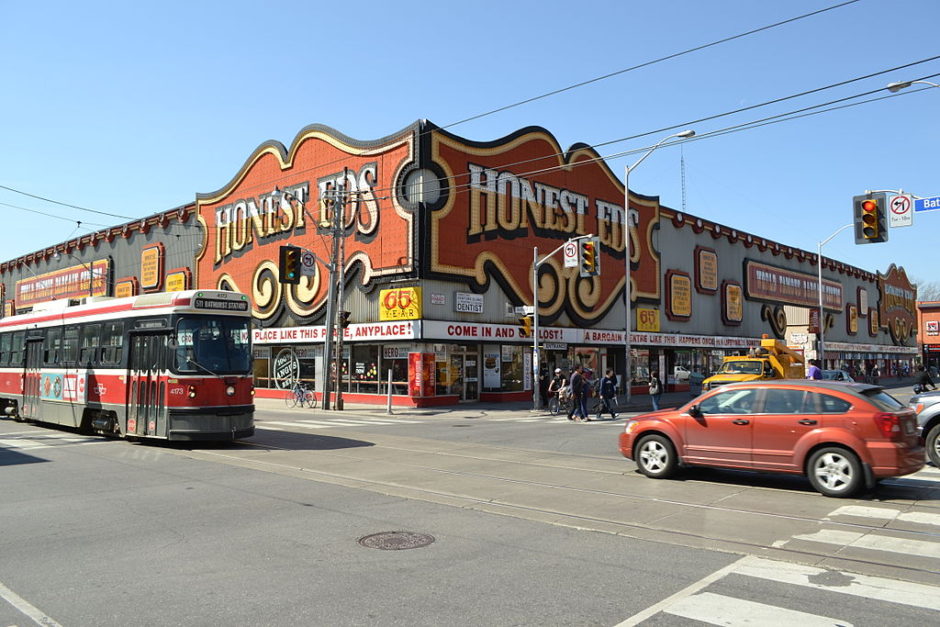The Toronto Jewish Film Festival runs from May 5-15 this year. On April 18, its lineup was announced at a press conference. The 24th edition is presenting four world premieres and 31 Canadian premieres. Twelve of the films will be seen in Toronto for the first time.
Three previews:
Edward G. Robinson virtually invented the celluloid villain. He’s the subject of Lyndy Saville’s empathetic and entertaining biopic, Discovering Edward G. Robinson, which will be screened on May 8 and May 11.
Robinson, born Emanuel Goldenberg, appeared in a string of Hollywood gangsters films in the 1930s, most notably in Little Caesar, in which he played a snarling, cigar-chomping hoodlum.
One of Hollywood’s leading actors, Robinson was born in Bucharest, the capital of Romania. He and his family immigrated to the United States after his brother was attacked by an antisemitic mob. Robinson grew up in New York City’s Lower East Side and broke into acting in the Yiddish theater.
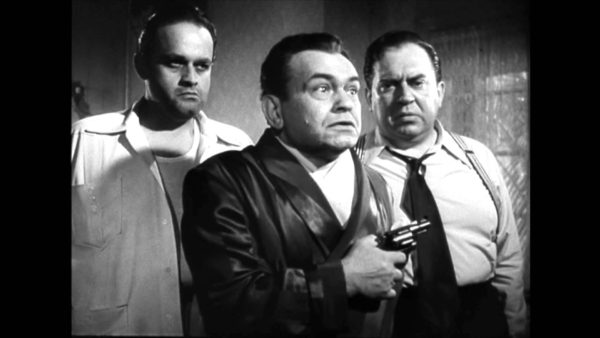
In 1927, a Hollywood scout spotted him in a Broadway play and liked his impression of a gangster. Warner Brothers thereupon offered him the part of Rico in Little Caesar, an opportunity Robinson exploited to the fullest. The role typecast him, but brought him acclaim and fame and cemented his reputation as an up-and-coming actor.
In his subsequent two movies, Smart Money and Bullets or Ballots, he played hard-boiled characters, a con artist and an undercover detective. In 1939, he made Confessions of a Nazi Spy, the first anti-Nazi film to emerge from a Hollywood studio.
Robinson, having made the transition to film noir, starred opposite Marlene Dietrich in Manpower (1941). And in Billy Wilder’s Double Indemnity (1944), a classic of infidelity and intrigue starring Barbara Stanwyck and Fred McMurray, he was magnetic as a probing insurance claims investigator.
In one of his most compelling performances, he reprised his gangster persona in John Houston’s Key Largo (1948), featuring Humphrey Bogart and Lauren Bacall.
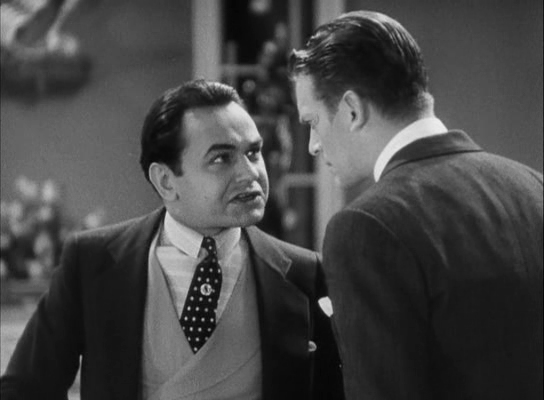
Summoned to testify before the House UnAmerican Activities Committee, Robinson, a liberal democrat, proved he was not a communist. But his appearance before that body tarnished his image and damaged his career.
After appearing in Cecil B deMille’s biblical epic, The Ten Commandments, he won respectable roles in A Hole in the Head (1959), a romantic comedy, and in The Cincinnati Kid (1965), where he regained his old luster. Robinson’s last film, Soylent Green (1973) was a science fiction drama.
Robinson is portrayed in this documentary as a man of culture, a philanthropist, a great art collector who was forced to sell his paintings to settle a nasty divorce, and a father who tried to help his drug-addled son.
For about a decade or so starting in the late 1960s, Jews in Israel ushered in the Sabbath by watching the weekly Arabic movie on Israeli television. The films were primarily from Egypt, the center of the Arab movie industry, but also from Lebanon and Syria.
It was a strange ritual, since Israel was technically at war with all three countries and had no diplomatic or commercial relations with them. But Israelis, particularly those who had been born in the Arab world, were intoxicated by these often melodramatic movies.
Eyal Sagui Bizawe, an Israeli filmmaker, was initiated into this ritual by his grandmother, Fortuna, who hailed from Egypt. On Friday afternoons, a few hours before the Sabbath, Bizawe’s family would gather in a Bat Yam apartment and watch films like Tears of Love, Love Beach and Water Quenches Thirst, starring A-list actors like Hussein Fahmi, Layla Murad (an Egyptian Jewish actress who converted to Islam) and Farid al-Atrash.
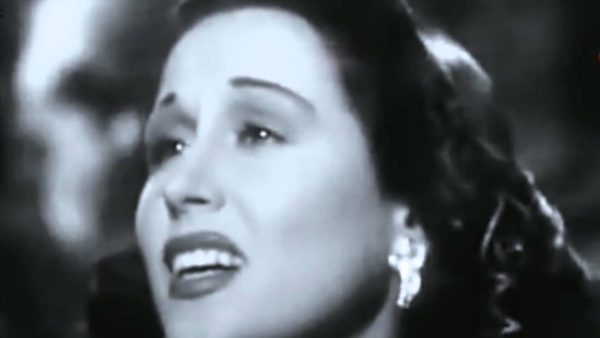
In their nostalgic documentary, Arabic Movie (May 9 and 13), Bizawe and Sara Tsifroni look back at the days when Israelis were practically addicted to such films. But in an era when cable TV offers Israeli viewers literally hundreds of channels, it’s hard to believe that Israelis were once so reliant on Arab movies for their entertainment.
The Israeli government introduced the Arab movie for the benefit of Palestinian Arabs living under Israel’s occupation in the West Bank and the Gaza Strip. But soon enough, Israeli Jews tuned in, forcing the Israel Broadcast Authority to add Hebrew subtitles.
By all accounts, no less a person than Moshe Dayan, the Israeli defence minister, was a fan as well.
Bizawe talks to an elderly woman originally from Egypt whose son was killed by Egyptian forces in the Sinai Peninsula during the 1973 Yom Kippur War. Although she was still in mourning over her loss when Bizawe talked to her, she told him she had not stopped watching Arab movies. “I can’t live without them,” she said. “They’re part of my life.”
As Bizawe observes, supposedly sophisticated Israelis looked down their noses at Arab films, considering them crude and emotionally excessive. But for thousands of other Israelis, they fulfilled a need.
Bizawe tries to figure out how these films reached Israel, but he bumps into a brick wall. “It was done on the sly and quietly,” says an official. Perhaps, as a Palestinian informant says, they were bought in Jordan. No one seems to know. What’s certain is that they were sold to Israel illegally.
John Martin’s film, Honest Ed Mirvish: The World’s Most Unusual Shopkeeper (May 15), was released in 1998, when the late Ed Mirvish was 83 and was still going strong as the sole owner of Honest Ed’s, the first self-service discount store in Canada.
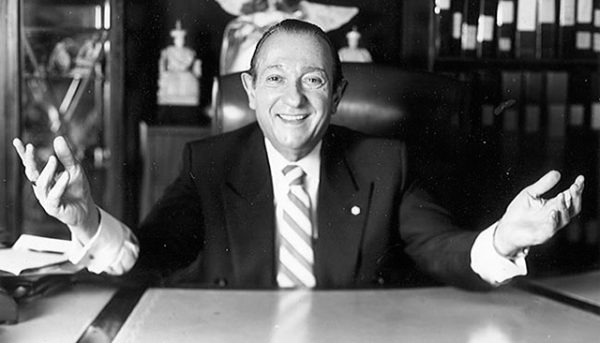
Born in the United States and raised in Toronto, Mirvish was an original who struggled with poverty and joined the millionaire’s club before he was 40.
Martin’s biopic, which traces his life from Colonial Beach, Virginia, to Canada, portrays him as an innovative and brash entrepreneur who never recoiled from self-promotion and sought out free publicity for his gaudy flagship store at the corner of Bathurst and Bloor. In this spirit, he donated a tractor to Fidel Castro and handed out free turkeys to customers on Christmas day.
“I have great respect for money,” Mirvish says in the first minutes of the film.
The son of Russian immigrants, he acquired his business acumen from his flamboyant uncle, Harry Mensh. But he learned the retail trade from his father, a salesman and grocer who never really made it and died when Mirvish was only 15.
After his father’s death, he dropped out of school to help his mother, but their grocery flopped and Mirvish had to look for employment. He and his wife, Ann, opened a women’s fashion shop in the garment industry, but Mirvish thought he could do better. In 1948, he opened Honest Ed’s, and business boomed. His mother worked in the store until she was 83, ferreting out shoplifters.
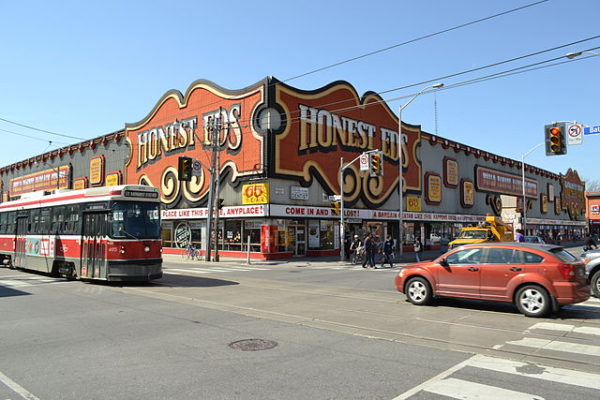
Mirvish bought the Royal Alexandra Theater in 1962 and refurbished it, launching a new career. In quick succession, he purchased the Old Vic in London, renovated it, sold it and built the Princess of Wales Theater in Toronto. In all these ventures, he enjoyed success.
Virtually a legend in his own time, Mirvish was quite a character.
